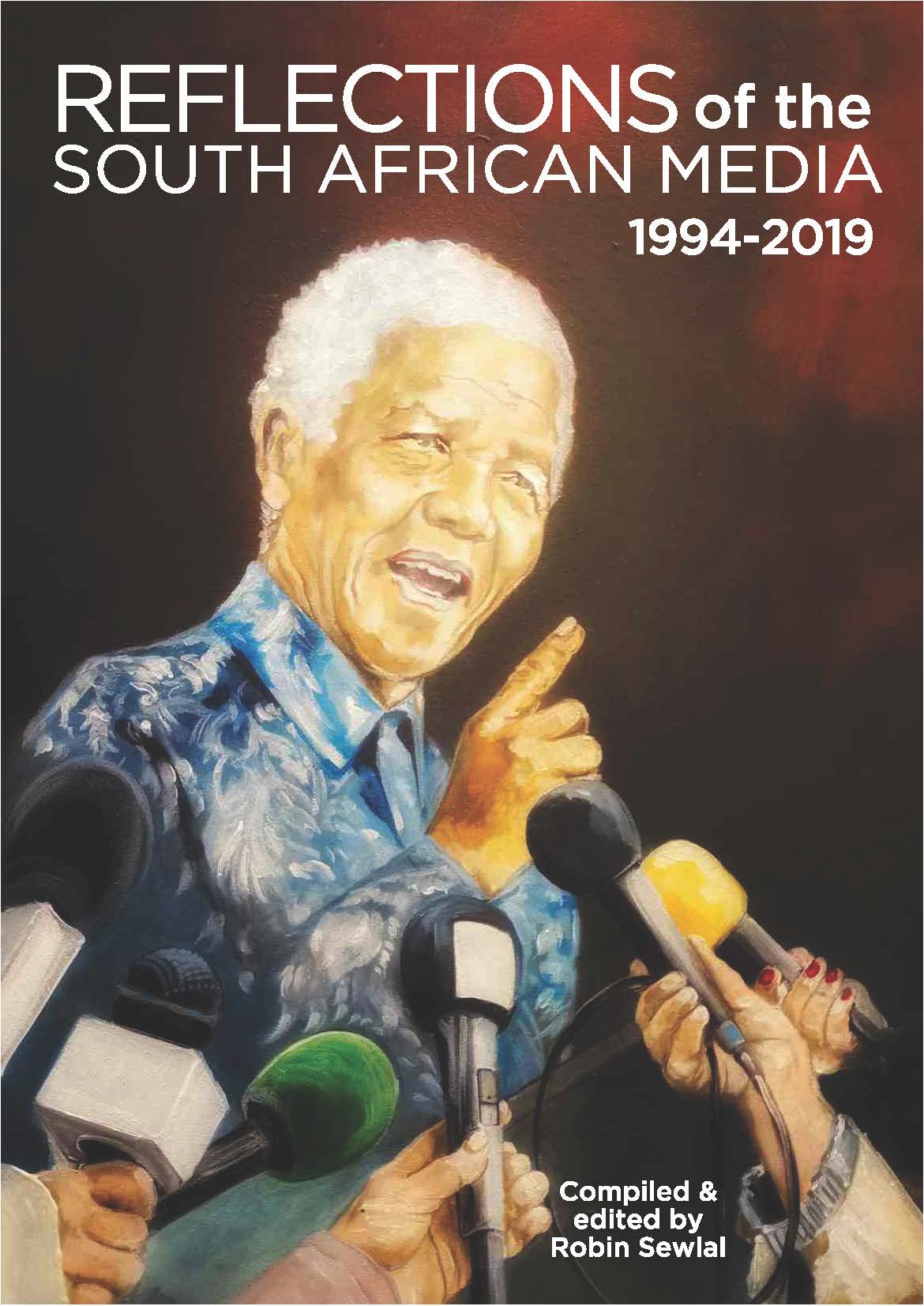Reflections of the SA Media 1994-2019, a book that captures and celebrates 25 years of the media industry in South Africa has been released.
The book was released on July 18, Mandela Day.
It was compiled and edited by Robin Sewlal, an advocate of the High Court of South Africa and associate director at DUT Journalism. He is the Legal Representative of the Institutional Research Ethics Committee (IREC), chairs the Senate Rules Committee and also serves on various other forums at the university.
With extensive experience in both print and electronic media, he was the chairperson of the International Radiocracy Conference in 2001. Comprising radio, democracy, and development, Radiocracy is a key fabric of society. Some other roles were as a commissioner at the Broadcasting Complaints Commission of South Africa (BCCSA), convenor and judge of the Vodacom Journalist of the Year competition, and KwaZulu-Natal convenor of the South African National Editors’ Forum (Sanef).
Published by Radiocracy and dedicated to those who have and continue to keep the media in South Africa voiceful and vibrant, Reflections of the SA Media 1994-2019 contains 40 excellent articles by different authors.
In his book, the advocate revealed that besides highlighting the state of the media in South Africa’s first 25 years of democracy, using media lenses, it is important to provide a better understanding of different perspectives of the industry.
He said before 1994, the media in South Africa was compelled to play by the rules of the undemocratic rulers or face the repercussions.
“Freedom of the media then was merely a pipedream. With the release of Nelson Mandela from prison, democracy in the country was in sight,” he wrote.
“The commencement of a democratic dispensation in 1994 saw the media environment being transformed.”
Te book highlights different chapters of the changes, especially in the broadcast sector.
“I was most impressed with the chapters submitted by our alumni. They do us proud in industry, and added gravitas to the publication,” he said.
He hailed Andrea Alcock, a DUT colleague who was very helpful in getting the book completed.
He gave a brief reflection of how the media in South Africa has changed, to meet the current trends of realities.
“Timeliness is paramount, and this places added pressure on media workers. Speed could very easily result in ambiguities and distortions in news output,” he said.
The editor also encouraged readers to read the chapter written by the CEO of the Nelson Mandela Foundation Sello Hatang, which focuses on Mandela’s relationship with the media.
“Mandela closely followed the work of the media, and he made it a point of getting to know journalists and build strong relationships with them. At present, the interaction between the media and newsmakers is not as healthy as it could be,” he confessed.
His advice to inspiring journalism graduates who want to follow in the footsteps of former alumni from DUT is to work hard, be honest, stay focused and always stick to the facts.
The book can be read online here.

